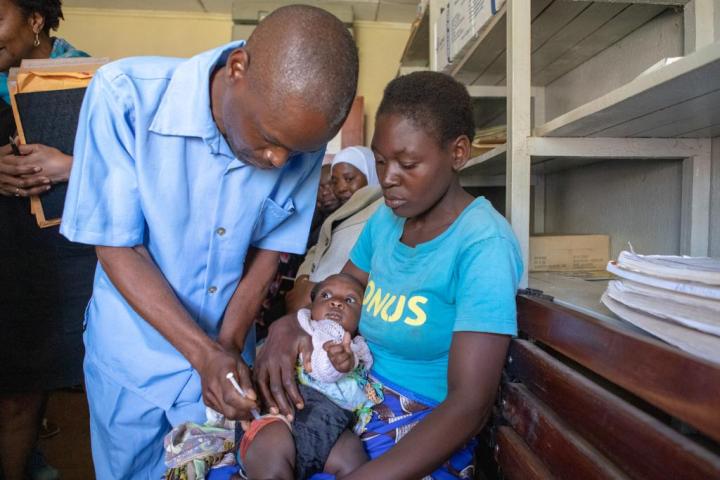Can technology help overcome malaria in poor African countries?
Technology can, and is, offering cost-effective ways to help address complex health challenges.

What stops healthcare reaching a community during a malaria outbreak? An under-resourced national health service? A remote location and a shortage of nearby medical supplies? Hand-written malaria assessments which take days to reach central clinics for analysis?
The answer is all the above. In many countries, these obstacles are overcome by technology; health services save money and manpower thanks to technological efficiency. Digitized data collection means medicines do not run out, and information on emerging epidemics can be shared at the touch of a screen.
Yet despite rising global, IT spending, with reports from Gartner suggesting it will reach a staggering US$3.8 trillion in 2019, in many countries healthcare technology can be hard to come by, and for understandable reasons. How do we make the case for internet, laptops and mobiles when many countries are struggling to keep under-resourced healthcare systems afloat?
In Guinea-Bissau, UNDP is working with the government on an initiative to digitize health data. But electronic data requires the internet and mobile tablets, and providing this requires investment. Guinea-Bissau is one of the poorest countries on the African continent, with high rates of disease and malnutrition. It would be easy for donors to assume that mobile tablets are a luxury this fragile healthcare system cannot afford.
Except technology can, and is, offering cost-effective ways to help address complex health challenges. With support from the Global Fund to Fight AIDS, tuberculosis and malaria, along with the World Bank, the initiative has introduced mobile tablets for data collection, increasing the timeliness of health reports in the Guinea Bissau national health system by nearly 50 per cent over six months. The digitized data system has also allowed real-time monitoring of malaria and enabled clinics to keep track of malaria medicines and health supplies, ensuring nearby stocks are available at the start of an outbreak. All of these factors meant malaria deaths dropped by 16 per cent from 2017 to 2018.
In a country where malaria remains the leading cause of mortality for pregnant women and children under five, effective public health surveillance is leading to informed disease prevention and control. Digitized information is literally saving lives.
And this is not technology for technology’s sake. It’s harnessing the power of simple, user-friendly mobile tablets to help strengthen national health systems and build local capacity. The data is not only for malaria but also for diseases such as cholera, polio and yellow fever, and it enables the Ministry of Health to respond rapidly. Training is fundamental and is carried out in close collaboration with the government to ensure sustainability, and is supported by partners including the World Health Organization, the Global Fund, the World Bank and the University of Oslo. To date, 223 people have been trained, including staff at health centres and hospitals and the hope is now to expand this to community health workers.
Adopting technology to tackle global health crises is well underway. But as Africa continues to bear an estimated 92 per cent of all malaria cases and deaths, are we fully utilizing the rise in mobile technology on the continent to help map, track, prevent and treat malaria in real time? And if not, why not?
There is no simple answer, but there is undoubtedly a need for greater investment and partnerships. The Sustainable Development Goal of Ending Malaria by 2030 is not just an issue for the health sector. Governments and development agencies must adopt an approach which unites departments in information and communication technologies along with doctors, nurses, clinicians and community health workers, and which draws on the vast technical experience of the private sector.
In 2018, the World Health Assembly acknowledged, with a resolution on digital health, the potential of digital technology to play a major role in improving public health. It is now time we act on that potential and increase investment in healthcare technology. This is not a luxury; it’s essential to ending malaria once and for all.
- FIRST PUBLISHED IN:
- UNDP
ALSO READ
Chinese internet giants buying back own shares to boost market value amid stock rout
An anonymous coder nearly hacked a big chunk of the internet. How worried should we be?
Govt to connect 1.5 million households to internet by end of the year
Concerns rise over surge in poverty, malnutrition among women, children in Afghanistan
Janet Yellen's Culinary Adventures in China Captivate the Internet










